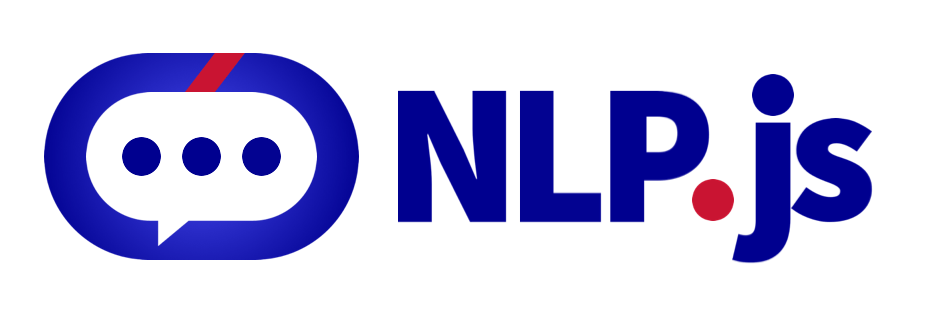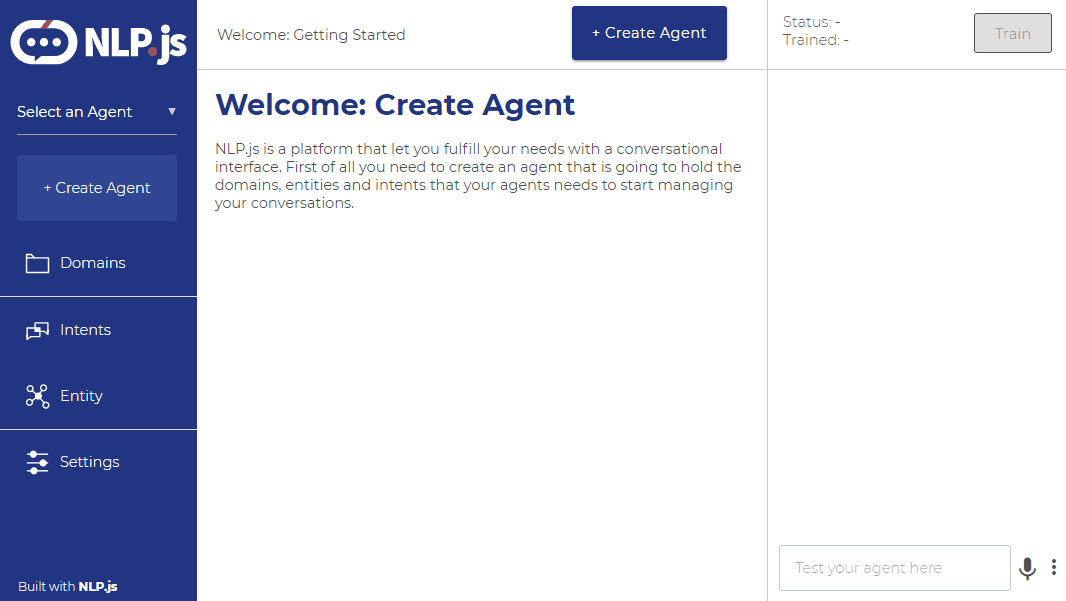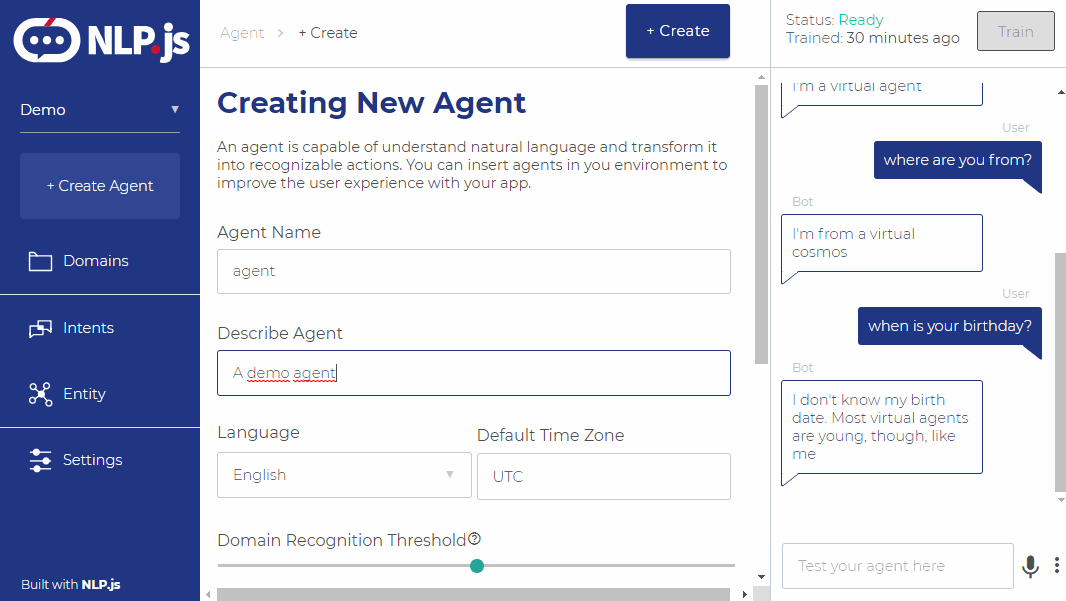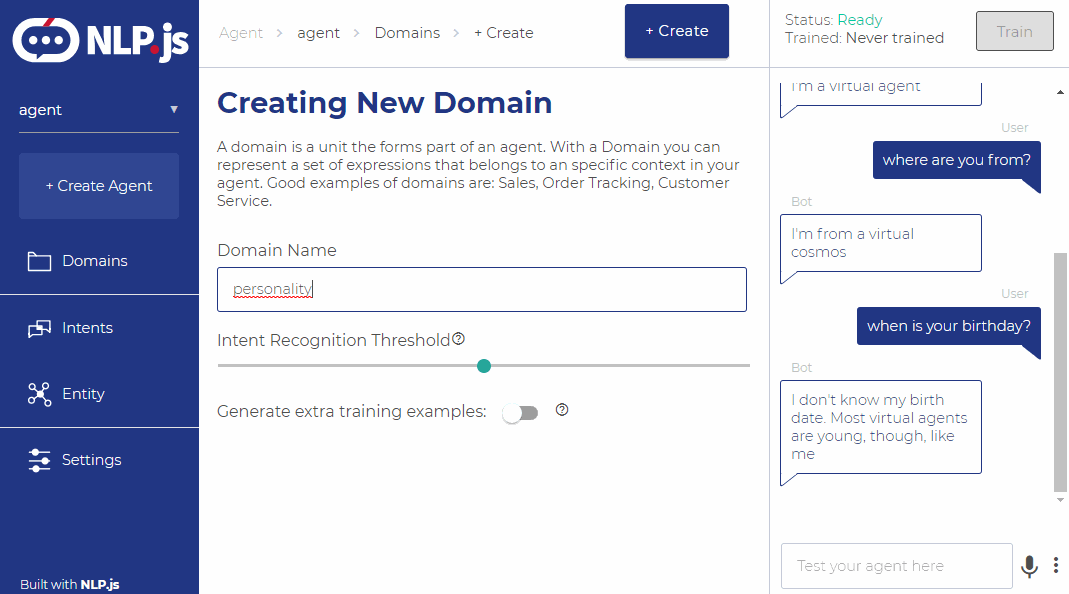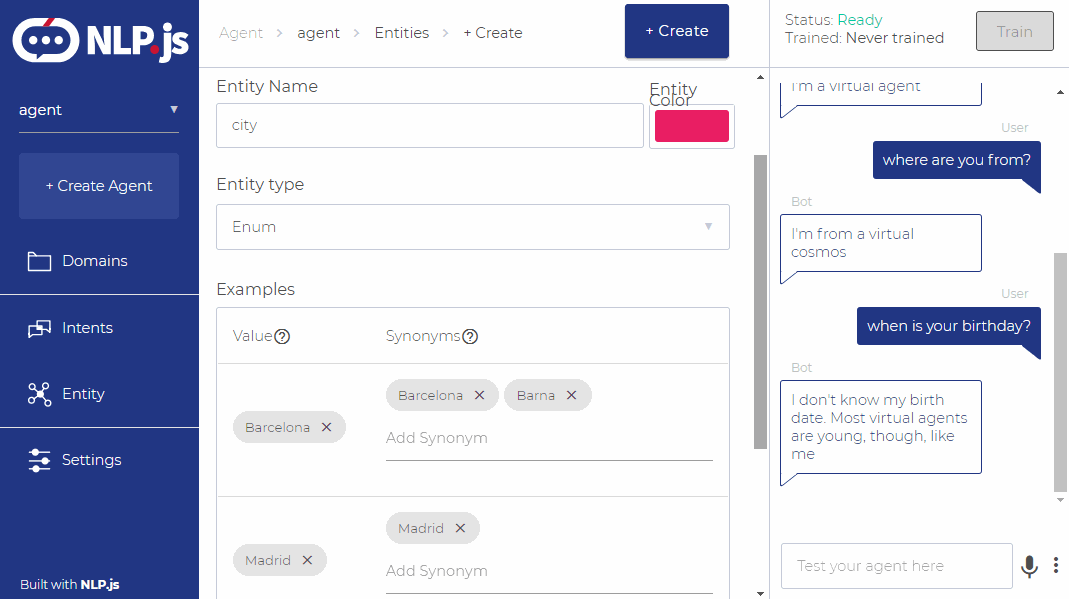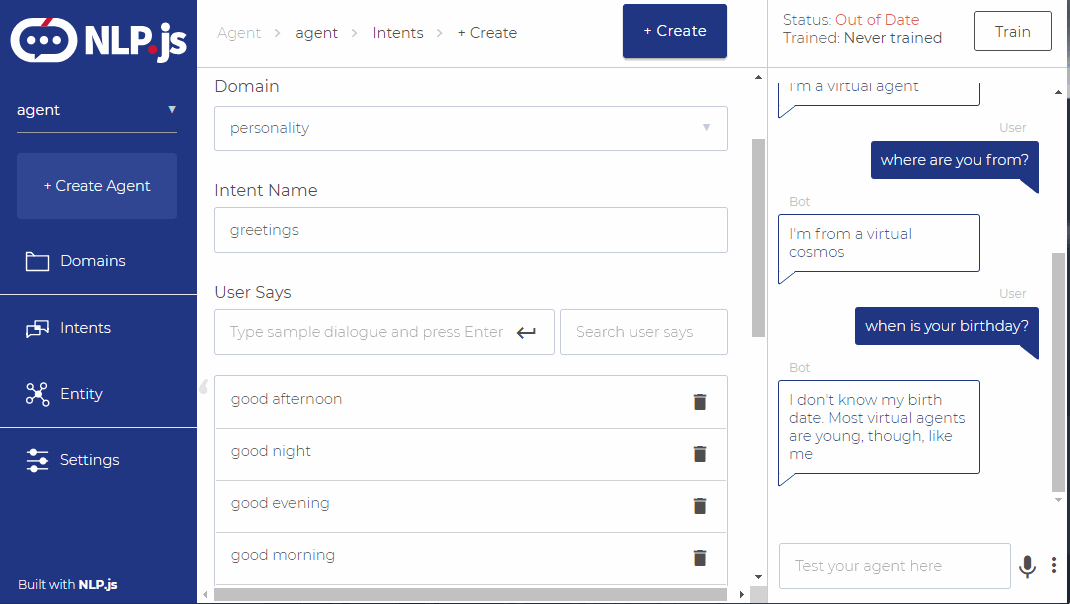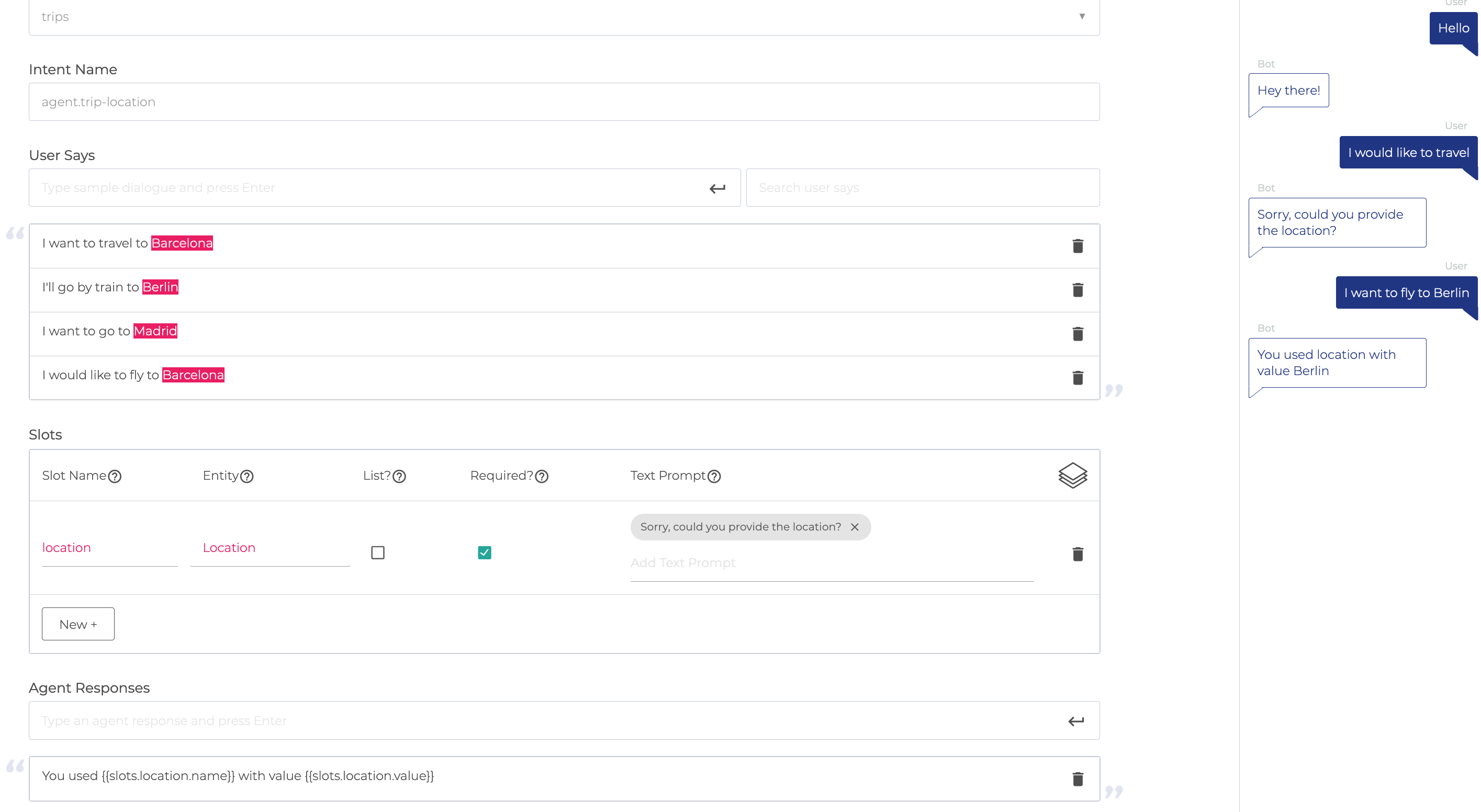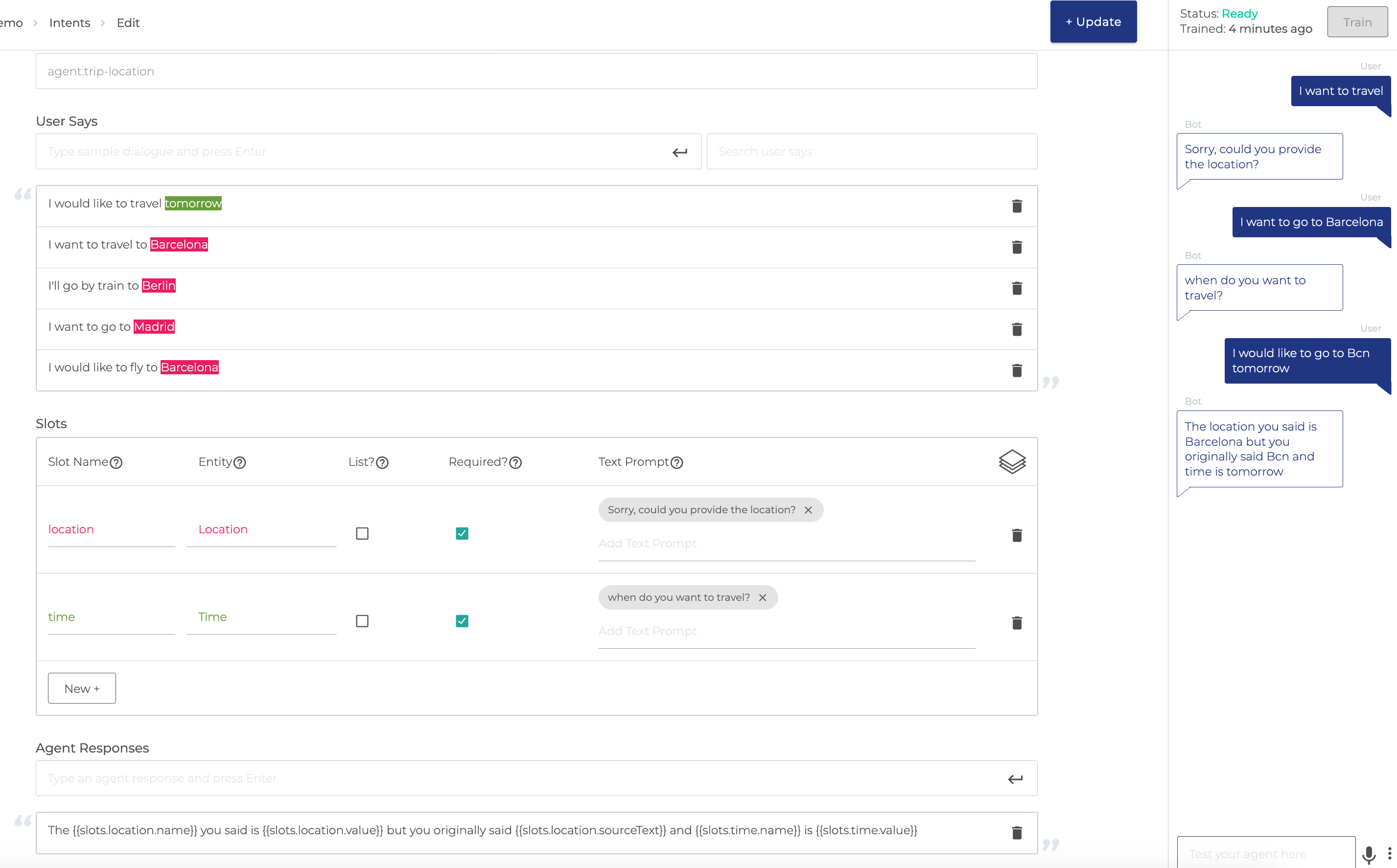Application to train your agents for bots, done using NLP.js.
34 languages supported: Arabic (ar), Armenian (hy), Bengali (bn), Basque (eu), Catala (ca), Chinese (zh), Czech (cs), Danish (da), Dutch (nl), English (en), Farsi (fa), Finnish (fi), French (fr), Galician (gl), German (de), Greek (el), Hindi (hi), Hungarian (hu), Indonesian (id), Irish (ga), Italian (it), Japanese (ja), Norwegian (no), Portuguese (pt), Romanian (ro), Russian (ru), Slovene (sl), Spanish (es), Swedish (sv), Tagalog (tl), Tamil (ta), Thai (th), Turkish (tr), Ukrainian (uk)
- Installation
- Example of Use
- Docker Compose
- Software Used
- Contributing
- Code of Conduct
- Who is behind it
- License
You have a one click installation for free in heroku, clicking the "deploy to heroku" button in this page. If you want to use it on-premise, follow this steps:
- MongoDB is needed
- NodeJS is needed
- Clone this repo
- Run
npm installto download dependencies - Modify the .env at the root to point to your database (you have a .envexample you can use)
- Modify the .env at the client folder to point to the url and port of your backend
- Run
npm startat the root folder - Run
npm startat the client folder (This step is OPTIONAL. Run if you want to make change in the front-end )
If you want to generate a production version, run npm run build at the client folder and copy the build contents to the public folder.
Example of application running in port 3010:
./.env
NODE_ENV=development
MONGO_URL=mongodb://localhost:27017/nlpjs
LOG_LEVEL=debug
PORT=3010./client/.env
SETTINGS_URL=http://localhost:3010
API_URL=http://localhost:3010
PUBLIC_PATH_PREFIX=Then, replace "public" folder content:
cd client
npm run build
cd ..
mv public public_old
mv client/build public
npm startYou can create an agent:
Then create at least one domain:
Create some entities if you need them:
Create some intents:
Train and test:
It's also possible to check required entities within an intent.
Example of basic slot filling:
Example of multiple slot filling used in the same intent:
A docker-compose receipt is available to allow a quick-start easily. Just execute:
Start:
docker-compose up
Start detached:
docker-compose up -d
Stop:
docker-compose down
It will start the Mongo database, NLP.js application and a Mongo Express to allow inspect the collections.
Consider the changes you may apply in the configuration as outlined in point Installation and take in mind the behaviour of Docker Compose as exposed in https://docs.docker.com/compose/compose-file/#env_file
This project is based on the Articulate Project from Samtec, that you can find here: https://github.com/samtecspg/articulate
You can read the guide of how to contribute at Contributing.
You can read the Code of Conduct at Code of Conduct.
This project is developed by AXA Group Operations Spain S.A.
If you need to contact us, you can do it at the email jesus.seijas@axa.com
Copyright (c) AXA Group Operations Spain S.A.
Permission is hereby granted, free of charge, to any person obtaining a copy of this software and associated documentation files (the "Software"), to deal in the Software without restriction, including without limitation the rights to use, copy, modify, merge, publish, distribute, sublicense, and/or sell copies of the Software, and to permit persons to whom the Software is furnished to do so, subject to the following conditions:
The above copyright notice and this permission notice shall be included in all copies or substantial portions of the Software.
THE SOFTWARE IS PROVIDED "AS IS", WITHOUT WARRANTY OF ANY KIND, EXPRESS OR IMPLIED, INCLUDING BUT NOT LIMITED TO THE WARRANTIES OF MERCHANTABILITY, FITNESS FOR A PARTICULAR PURPOSE AND NONINFRINGEMENT. IN NO EVENT SHALL THE AUTHORS OR COPYRIGHT HOLDERS BE LIABLE FOR ANY CLAIM, DAMAGES OR OTHER LIABILITY, WHETHER IN AN ACTION OF CONTRACT, TORT OR OTHERWISE, ARISING FROM, OUT OF OR IN CONNECTION WITH THE SOFTWARE OR THE USE OR OTHER DEALINGS IN THE SOFTWARE.
